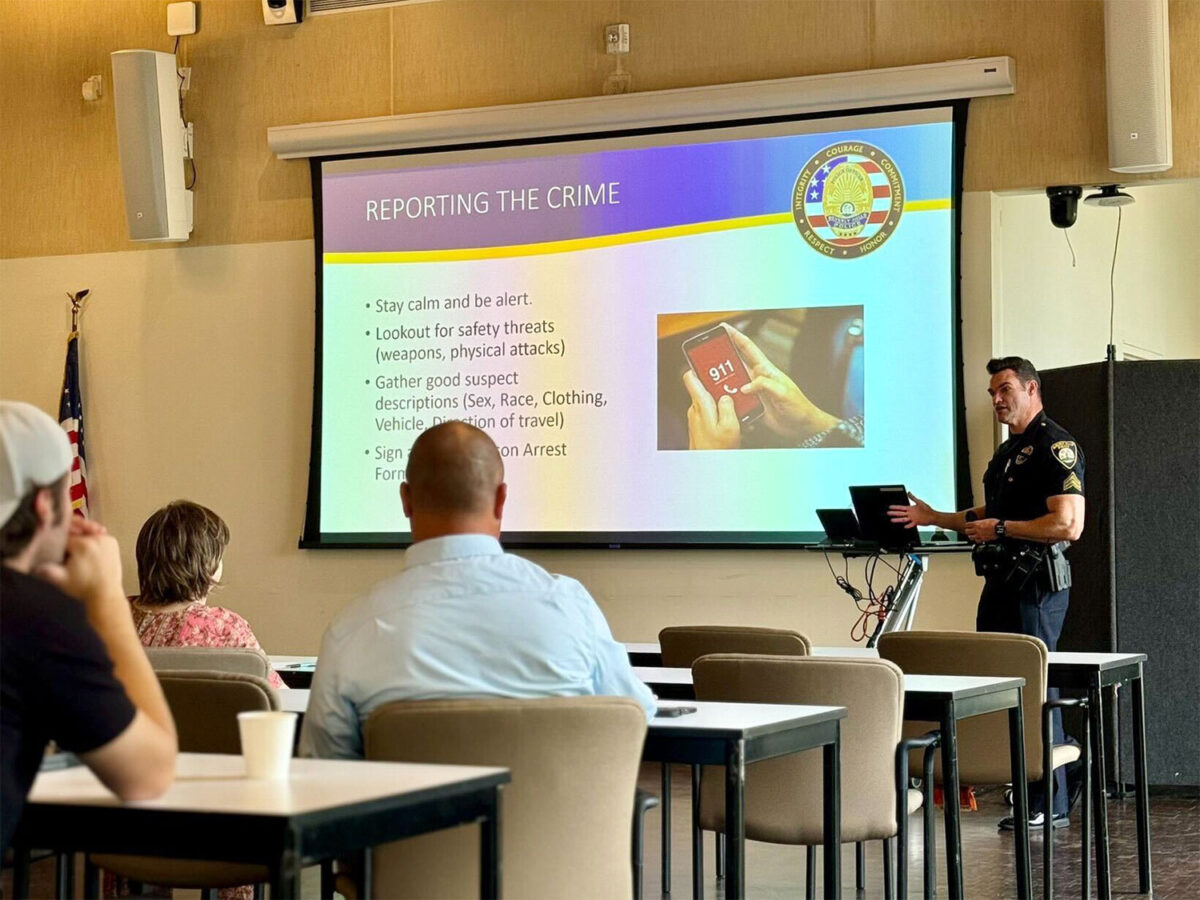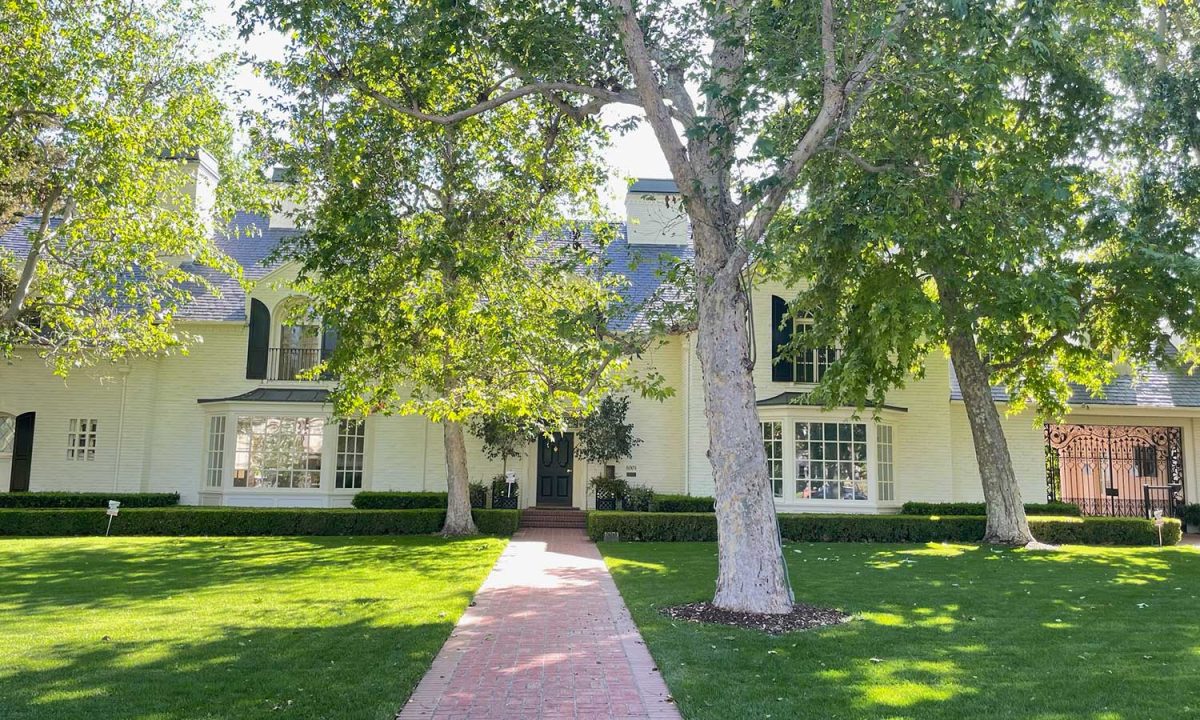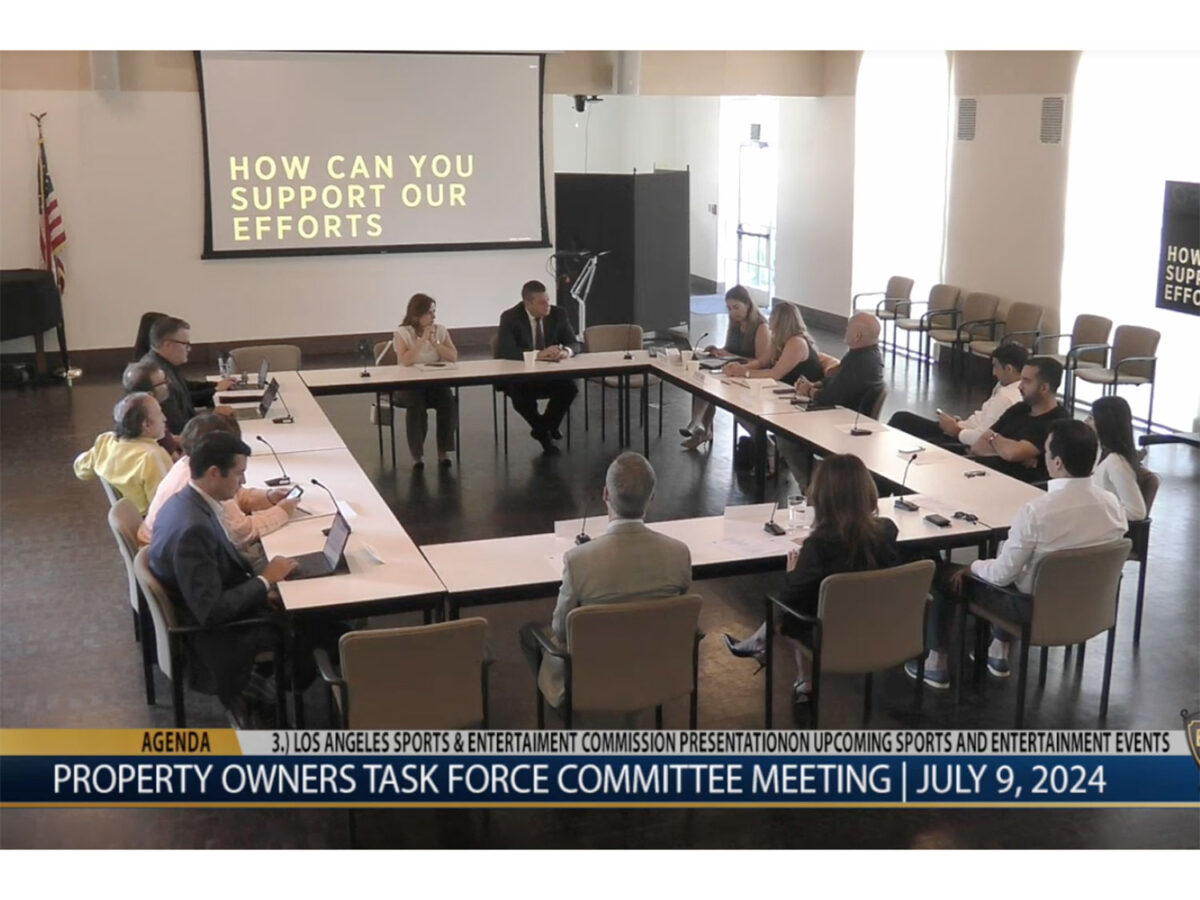A young woman on the sidewalk was shouting at everybody and nobody in particular before grabbing and pulling the hair of a bystander walking past her, Beverly Hills Police Department Officer Adam Falossi recalled.
“She was basically just assaulting people for no rhyme or reason, clearly due to mental health issues,” he told the Courier.
He and his partner, Officer Lowell Rose, detained the woman so she wouldn’t be a danger to herself or others. If they were ordinary officers, their involvement might have ended after dropping her off at a healthcare facility and placing her under what’s commonly known as a “5150 hold.”
But they are part of the Mental Health Evaluation Team (MHET), a special detail that launched in April 2023. It’s assigned to de-escalate situations involving people who might be experiencing crisis due to a mental health condition, and also to help connect homeless people with services and pathways to housing.
The Beverly Hills MHET is a collaboration between BHPD and the Los Angeles County Department of Mental Health and is currently made up of two officers and a licensed clinical social worker. The partnership gives the team access to county resources and information that normally wouldn’t be accessible to officers.
Because of that, the team was able to check county records to quickly identify the woman who had been shouting in the street. They learned that she had somehow gone absent from a live-in care facility, but had not been reported missing yet, Falossi said.
“If it weren’t for their resources, we wouldn’t know she was supposed to be at an assisted living facility,” he said. “And it would have been much more difficult, or unlikely to reunite her with that facility.”
That patient’s case is one of the 1,033 times in roughly the first 10 months of the Beverly Hills MHET’s operation it has either responded to a situation involving mental health issues or made contact with people experiencing some sort of crisis, according to statistics provided by the BHPD. Of those, 43 resulted in an arrest and 90 resulted in a stay at a mental healthcare facility.
“The officers are great at knowing when to place people on a hold when they meet a higher level of care,” the team’s licensed clinical social worker, Maribel Mancillas, said. “But it’s sort of like a temporary Band-Aid when they go in for a 72-hour hold.”
Having a clinician onboard helps the team better understand the needs of those they help and more efficiently guide them toward support, Rose and Falossi said. And their exclusive focus on mental health-related cases lets them spend more time following up with people and building relationships in ways the officers were previously unable to while juggling other types of calls for service.
“We can go and have a 30-minute conversation with some of these people and just really break the ice with them, get them comfortable with us,” Rose said.
Much of the team’s work is focused on outreach to connect people with mental health services and other types of aid. These can include psychiatric care, drug or alcohol counseling, housing assistance and much more.
Their help is available to everyone in the city, regardless of their background. As many as 872 of their interactions, roughly 85%, involved people who were unhoused.
It has taken time, but many of the people Beverly Hills MHET have been working with over the past several months are becoming more receptive to accepting help, Falossi, Mancillas and Rose said.
“There’s definitely been a shift,” Mancillas said. I feel that there’s less people who are in more of a crisis state. We’re making those connections with resources. We’re seeing more compliance with medication.”
The team operates five days a week during mornings and afternoons, which is when most calls related to mental health issues tend to be reported to dispatchers, Falossi and Rose said. Many do come in after hours, and MHET has generally been successful at getting in touch with all of the people who reach out to them.
“Mental health is real,” Mancillas said. “People need help, and they do want to talk.”







